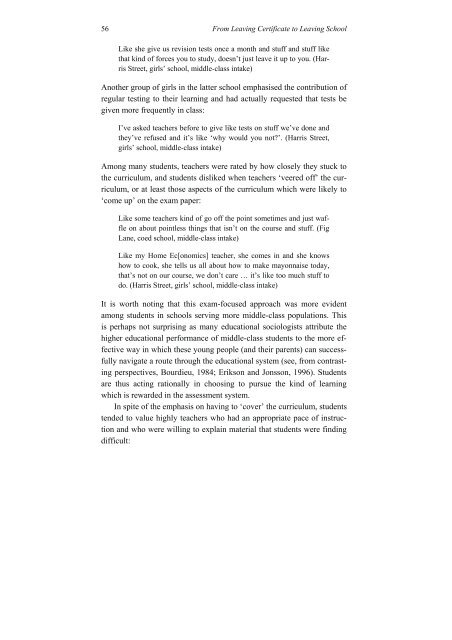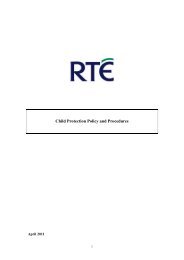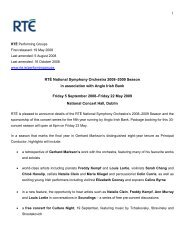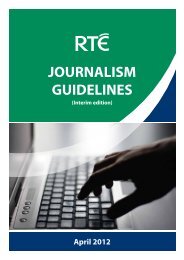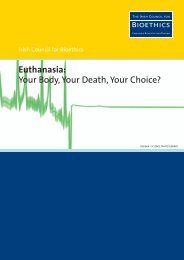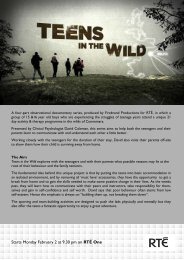From Leaving CertiFiCate to Leaving SChooL a Longitudinal Study ...
From Leaving CertiFiCate to Leaving SChooL a Longitudinal Study ...
From Leaving CertiFiCate to Leaving SChooL a Longitudinal Study ...
You also want an ePaper? Increase the reach of your titles
YUMPU automatically turns print PDFs into web optimized ePapers that Google loves.
56<br />
<strong>From</strong> <strong>Leaving</strong> Certificate <strong>to</strong> <strong>Leaving</strong> School<br />
Like she give us revision tests once a month and stuff and stuff like<br />
that kind of forces you <strong>to</strong> study, doesn’t just leave it up <strong>to</strong> you. (Harris<br />
Street, girls’ school, middle-class intake)<br />
Another group of girls in the latter school emphasised the contribution of<br />
regular testing <strong>to</strong> their learning and had actually requested that tests be<br />
given more frequently in class:<br />
I’ve asked teachers before <strong>to</strong> give like tests on stuff we’ve done and<br />
they’ve refused and it’s like ‘why would you not?’. (Harris Street,<br />
girls’ school, middle-class intake)<br />
Among many students, teachers were rated by how closely they stuck <strong>to</strong><br />
the curriculum, and students disliked when teachers ‘veered off’ the curriculum,<br />
or at least those aspects of the curriculum which were likely <strong>to</strong><br />
‘come up’ on the exam paper:<br />
Like some teachers kind of go off the point sometimes and just waffle<br />
on about pointless things that isn’t on the course and stuff. (Fig<br />
Lane, coed school, middle-class intake)<br />
Like my Home Ec[onomics] teacher, she comes in and she knows<br />
how <strong>to</strong> cook, she tells us all about how <strong>to</strong> make mayonnaise <strong>to</strong>day,<br />
that’s not on our course, we don’t care … it’s like <strong>to</strong>o much stuff <strong>to</strong><br />
do. (Harris Street, girls’ school, middle-class intake)<br />
It is worth noting that this exam-focused approach was more evident<br />
among students in schools serving more middle-class populations. This<br />
is perhaps not surprising as many educational sociologists attribute the<br />
higher educational performance of middle-class students <strong>to</strong> the more effective<br />
way in which these young people (and their parents) can successfully<br />
navigate a route through the educational system (see, from contrasting<br />
perspectives, Bourdieu, 1984; Erikson and Jonsson, 1996). Students<br />
are thus acting rationally in choosing <strong>to</strong> pursue the kind of learning<br />
which is rewarded in the assessment system.<br />
In spite of the emphasis on having <strong>to</strong> ‘cover’ the curriculum, students<br />
tended <strong>to</strong> value highly teachers who had an appropriate pace of instruction<br />
and who were willing <strong>to</strong> explain material that students were finding<br />
difficult:


